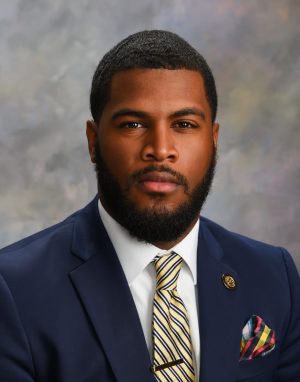As social issues are increasingly debated in the mainstream and beyond, the question of “equality” as it relates to all aspect of society is commanding more attention than it has in recent history. One area that is often overlooked is the relative dearth of people of color (POC) in the workplace as well as in higher education. More specifically, the failure of universities and businesses in most industries to embrace diversity and improve the number of POC in their workforce is particularly notable. Equity, inclusion, and diversity should all be top priorities across different sectors and disciplines, not only because doing so would enhance society in general but also because it would improve the workplace in particular.
Inequity in Academia
 Jeremy C. McCool
Jeremy C. McCoolRacial discrimination continues to impact POC in higher education. This includes a distinct lack of professors of color, which consequently negatively impacts the student body and disproportionately affects minority students. The reality of the situation is that despite the sometimes impassioned statements from universities and colleges to the contrary, the racial and ethnic diversity of faculty has not seen significant boosts in many years. According to data collected and organized by The Journal of Blacks in Higher Education, only five percent of full-time faculty in universities and colleges in the United States are Black, particularly in high-ranking universities. The result is an environment in which students of color often feel excluded and discriminated against on a fundamental level, leading to discouragement and disillusionment.
Inequity in the Workforce
The workforce in “skilled” professions, particularly those that require college degrees, continues to be largely White in composition. In 2015, for example, 81 percent of lawyers were White and only seven percent of law firm partners were non-white. The problem doesn’t end there. Inherently there is a marked lack of diversity in big tech, too, with Google’s annual workforce diversity reports showing that the majority of its employers were white, with just 2.5 percent of their employees belonging to communities of color. Research conducted by the American Bar Association shows that this issue is persistent across industries, with just 11% of the employed workforce in management and professional occupations identifying as POC.
Diversity Drives Innovation
 Dr. Tyrone Smith
Dr. Tyrone SmithEmbracing diversity is beneficial for businesses and higher education alike. Academia often prides itself on its creativity and constant innovation, however, as seen above, it is leaving a massive driver of innovation by the wayside. POC students and faculty contribute to the overall health and productivity of a campus in several different ways.
First, diversity in higher education improves thought processing and communication skills according to a report from The Century Foundation. This occurrence is often due to the challenge to stereotypes that diverse student and faculty bodies present, prompting students to reconsider preconceived biases.
Diversity is even more important in skilled professions, with recent research showing that workforces with a more diverse workplace were significantly more likely to report high financial returns. According to research collected by Harvard Business Review, the same is true of organizations with diverse leaders, with researchers noting that diversity is a key driver of innovation.
Diversity in higher education as well as in skilled occupations is still woefully lacking, however it’s never too late to diversify the workforce and explore the resulting innovation benefits.
Dr. Tyrone Smith, Jr is a global strategy and workforce analytics leader.
Jeremy C. McCool is a college educator, scholar, media consultant and author. McCool is currently a doctoral candidate at Indiana University of Pennsylvania pursuing a Ph.D. in Media and Communications Studies.



















